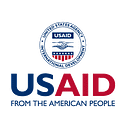Catch of the Year: CATALYZE Helps Woman Entrepreneur Reel in a Loan
--
In 2017, after working for multinational companies for 18 years, Jenny Salazar took the leap from corporate employee to entrepreneur, drawing on her personal savings to open the restaurant Olor de Mar, which translates to “scent of the sea.” The restaurant, located on a beach in La Libertad, El Salvador, was in Salazar’s words, “a dream come true.” Her business quickly expanded, leading to the opening of a second restaurant in 2020. Starting — and then growing — a business presented an enormous opportunity for Salazar but also significant challenges.
“Everyone says women can do it all, but they don’t realize the physical and mental exhaustion we go through to achieve our goals. For the first four years of the business, I worked seven days a week alongside my day-job,” said Salazar. “It was difficult to know if [I] was going to have enough money. I had a notebook where I wrote down every single one of my sales.”
Starting out, Salazar relied on loans with low credit limits and high interest rates. Salazar is not alone in her struggles as a female entrepreneur. While women own more than 70% of micro, small, and medium enterprises in El Salvador, they often struggle to access financing needed to grow their businesses (Pro Mujer). Financial institutions’ collateral requirements and lengthy and complicated application processes can limit women’s lending power.
To increase access to financing for women-owned small- and medium-sized enterprises (W-SMEs), the USAID CATALYZE Women Building Resilience (WBR) Activity partners with local banks in El Salvador through technical assistance and innovative, tailored products and services targeting W-SMEs, which are defined as businesses that are at least 51% owned, managed, and controlled by a woman. To ease the loan application process for women, CATALYZE WBR and Propemi Banco America Central (BAC) Credomatic designed a point-of-sale-based (POS) lending product with greater accessibility and fewer requirements than those of the bank’s conventional offerings to W-SMEs in 2021.
This new loan product, launched in 2022, was based on a POS system that businesses use for credit and debit card transactions. With the POS-based loan product, BAC assesses a company’s historic sales to determine its loan eligibility and repayment capacity, removing the collateral and documentation requirements for conventional loans. Given that women only own a fraction of land in El Salvador and often lack formal business records, traditional low underwriting processes restricted women from accessing financing.
A client of BAC’s, Salazar began using the POS system to process credit card transactions at Olor de Mar in 2019. Based on her historic sales, BAC pre-approved her for a loan in January 2023 through the POS-based lending product. She gladly accepted a loan for $70,000. Salazar needed the injection of capital as she had opened a third restaurant in 2022 with only $3,000 in personal savings. The rest of her money was tied up in current operations. The expedited loan application process helped Salazar quickly apply and she received the capital she needed within a few days.
“BAC was our best partner at the time we needed them most,” Salazar said, “We didn’t have the cash flow to disassemble and open [the new restaurant]. We were looking for a capital injection.”
